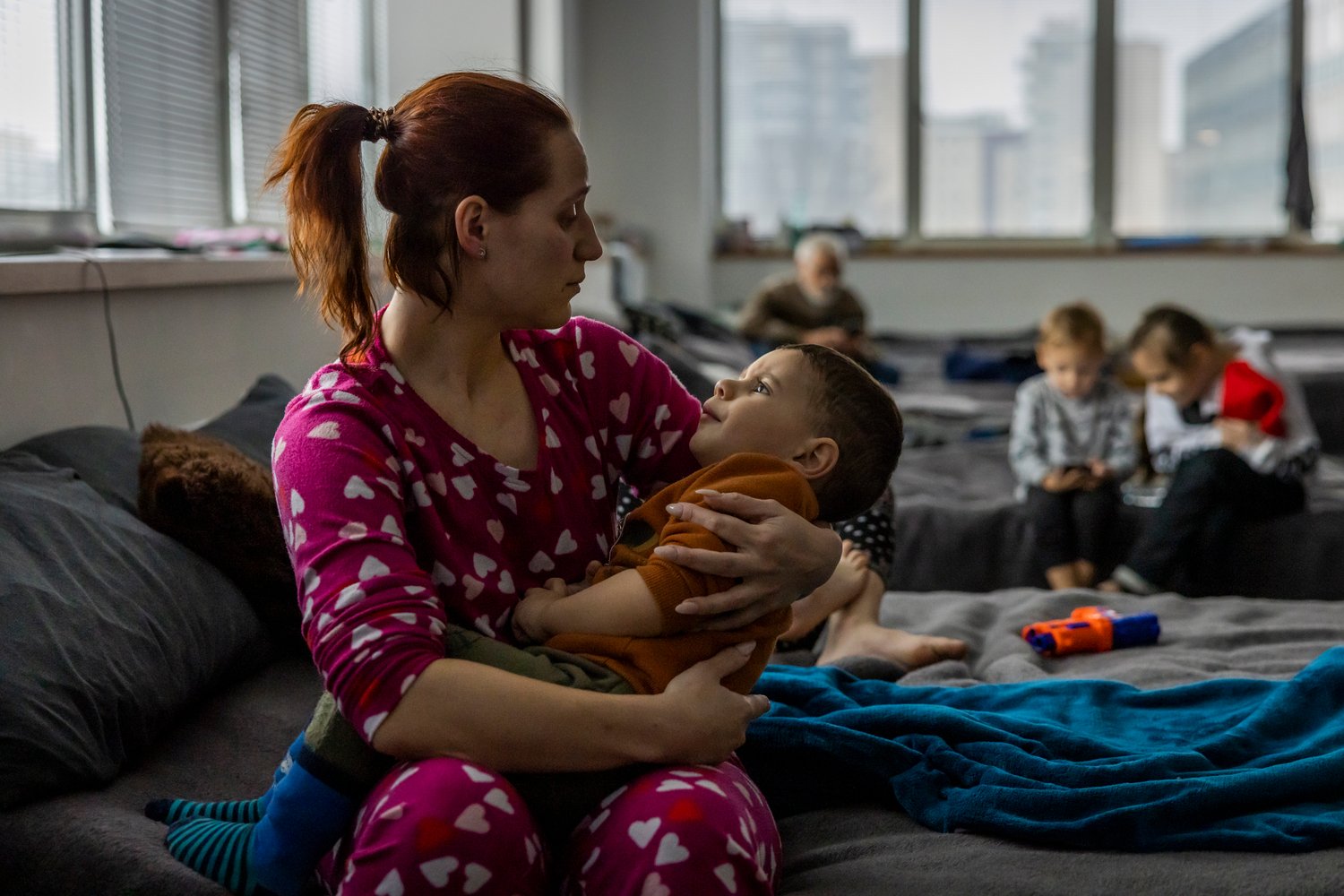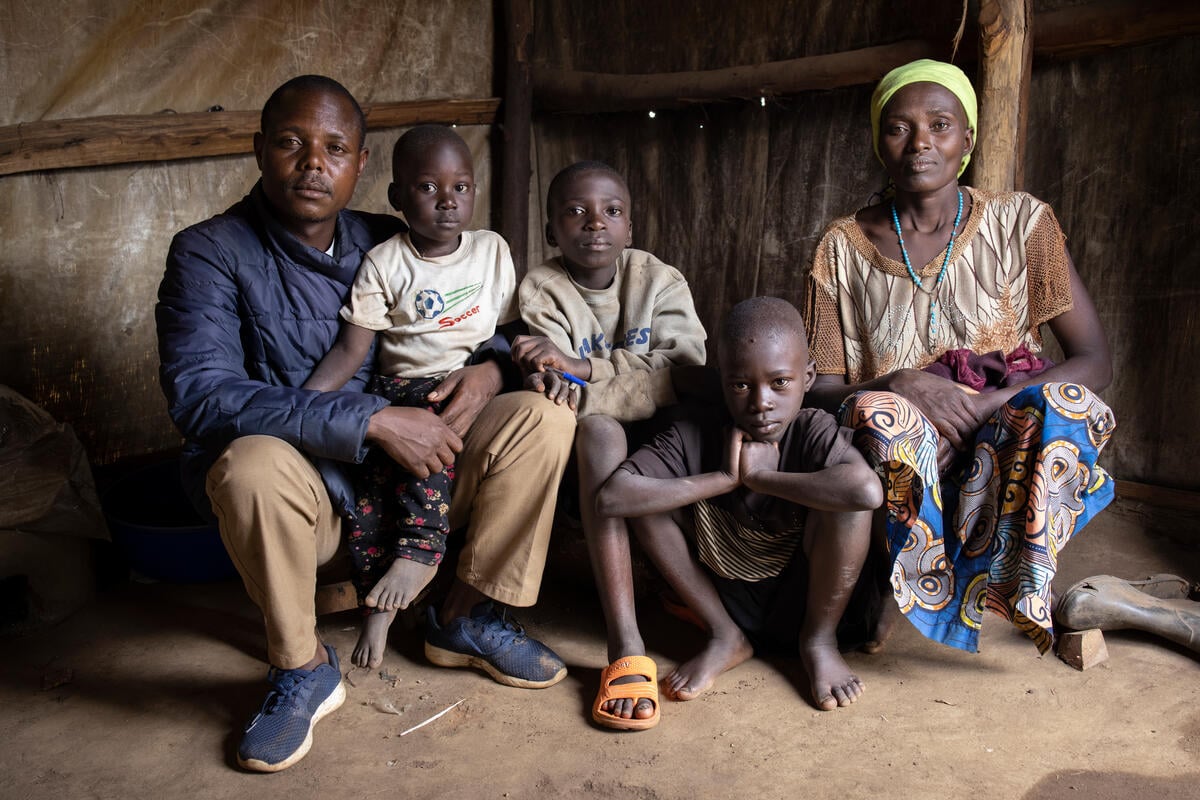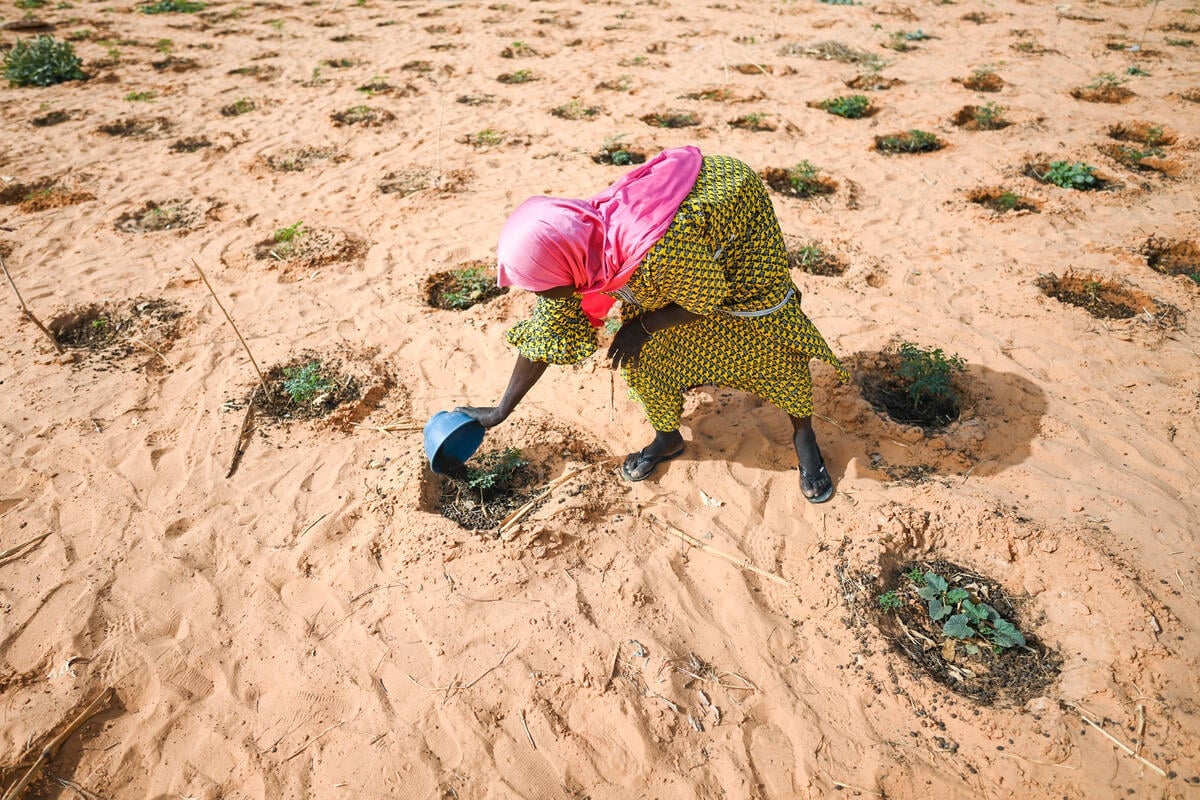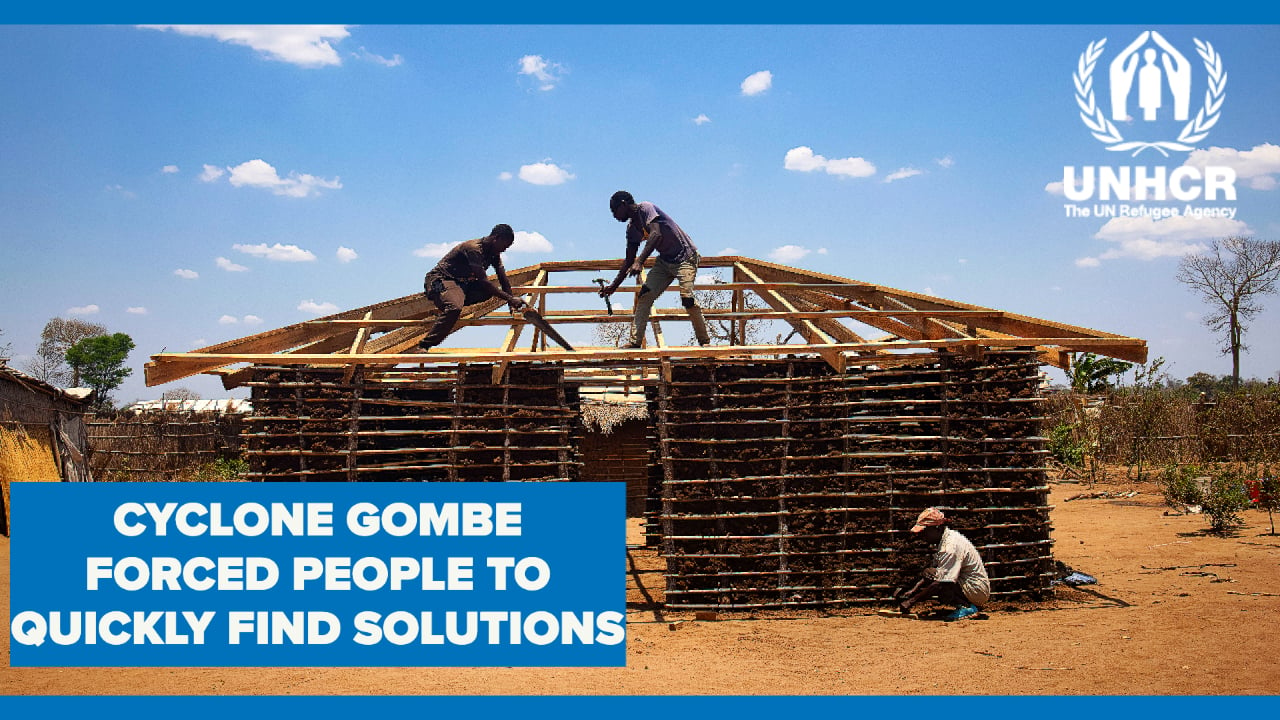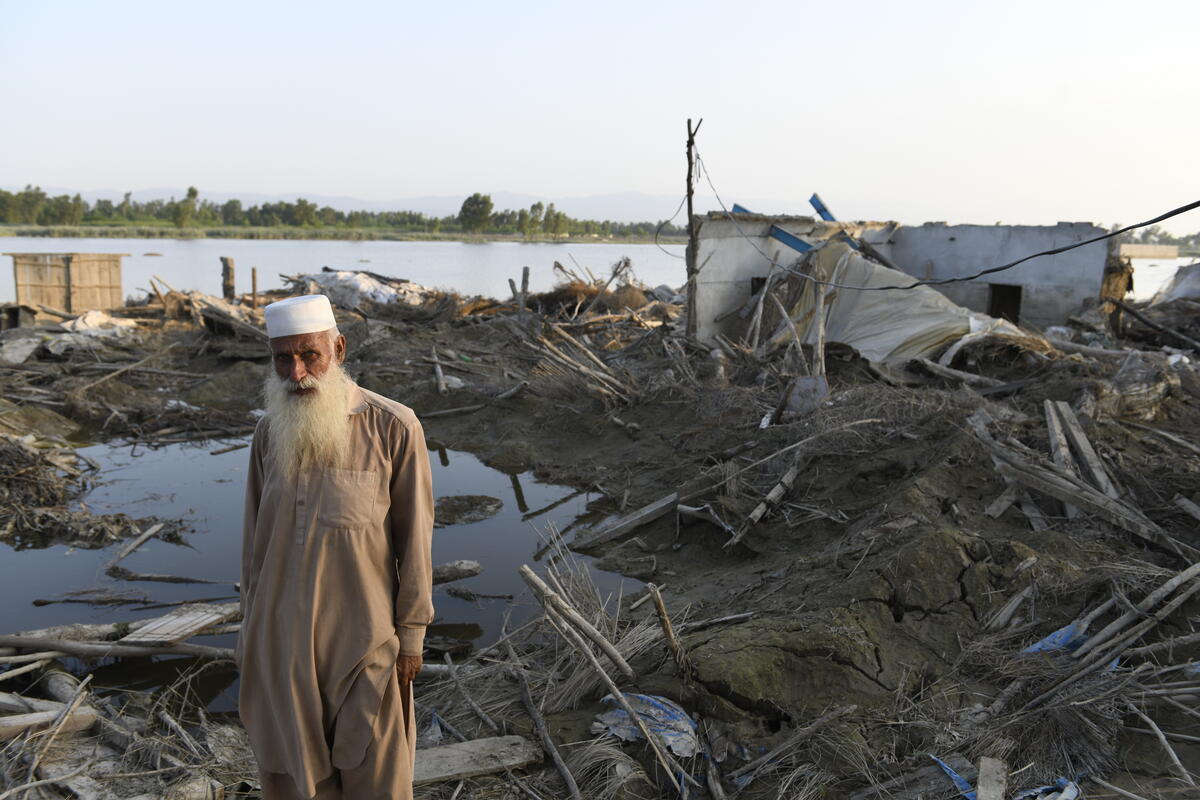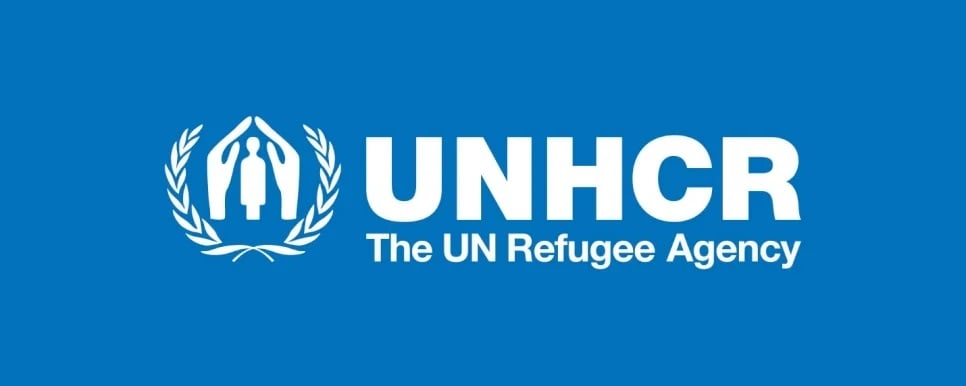Helping others brings solace to displaced mother in Cabo Delgado
Twice, Maria has been forced to flee her home. In March 2020 she escaped to the coastal town of Palma after non-state armed groups attacked her village in Mocimboa da Praia in northern Mozambique. Now, a year later, she has had to flee again, leaving everything behind after Palma was attacked on 24 March.
The 31-year-old mother-of-three was working in the fields, tending to the family’s cassava and rice farm, when her husband phoned to tell her the town was under attack and to take their three daughters and run. They took off towards the beach.
“I walked and swam in the water. I had to get my children to safety,” Maria recalls. “I could see others struggling in the water; some did not make it. It was terrible.”
After about 15 minutes, they reached shore and travelled for two days to reach the next town of Quitunga, some 15 kilometres south of Palma, where she stayed with relatives.
“We were lucky to have a roof over our heads and food for the children, as many families were just sleeping on the streets with nothing,” she says. She had no word of her husband’s safety or whereabout, with all communications from Palma completely cut off.
"I had to get my children to safety."
After three days in Quitunga, the sound of shooting filled the air – it was time to run again. The family left by boat, arriving in early April in Pemba, the capital of Cabo Delgado province.
The majority of new arrivals are staying with family and friends, but Maria, who has no relatives in Pemba, is staying with some 250 other forcibly displaced people at a sports facility converted by the government into a transit centre.
Since 24 March, over 19,000 people have fled Palma to the towns of Nangade, Mueda, Montepuez and Pemba. Thousands more are thought to be displaced inside Palma district. Nearly 700,000 people, mainly women, children and the elderly are internally displaced in the provinces of Cabo Delgado, Niassa, Nampula, Sofala and Zambesia, as a result of recurring attacks and violence by non-state armed groups since October 2017.
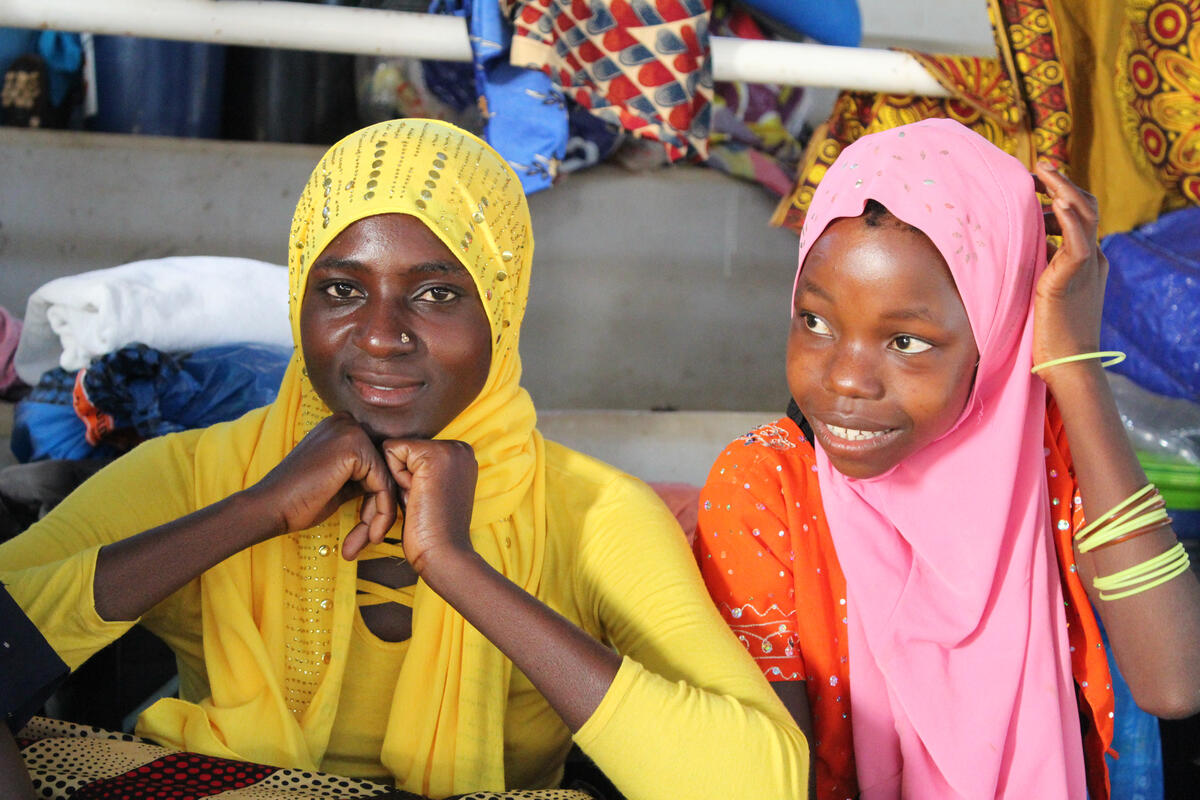
UNHCR, the UN Refugee Agency, has been providing protection services and relief items like sleeping mats and blankets to residents at the transit centre, as well as screening and verifying the details of arrivals and identifying the most vulnerable people in need of urgent assistance.
In the two weeks she has been here, Maria has volunteered with UNHCR to help organize discussions with new arrivals and explain the importance of COVID-19 and cholera prevention measures to other women. She also helps to identify survivors of gender-based violence and refer them to UNHCR for assistance.
“I feel rewarded doing this job. I’ve learnt a lot about women empowerment and how to take better care of ourselves. Now, I want to share this knowledge with others so they can improve their lives,” she explains.
Every morning, she prepares water buckets for people to wash their hands as part of COVID-19 prevention measures. She says she has noticed improvements in hygiene practices among the displaced population as a result of focus group discussions and training sessions.
“It’s not easy to change people’s behaviour but little by little, more women and men are caring about hygiene. It’s really important, especially in crowded places, to prevent the spread of diseases,” she adds.
Maria participated in training on prevention of sexual exploitation and abuse, and helps to translate awareness material from English to Kimwani, the dialect spoken in Palma.
"I feel rewarded doing this job."
Margarida Loureiro, the Head of UNHCR’s Office in Pemba, underscores the critical role that volunteers like Maria are playing.
“As much as we work for the community, we also work with the community. It is key for us to involve displaced people and the host communities, to fully understand their needs,” she explains.
Although Maria is plagued by constant worry over her husband’s safety, she is trying to be strong for her girls, aged 5, 13 and 15, who she says miss their father terribly. She has no plans about what to do next, but her priority is to be reunited with her husband.
“Every day when I wake up, I really hope to find him at the door of the transit centre, in good condition,” she says.
For now, she is glad to be safe with her girls, who she hopes “will one day resume school and have a chance to choose their future.”



